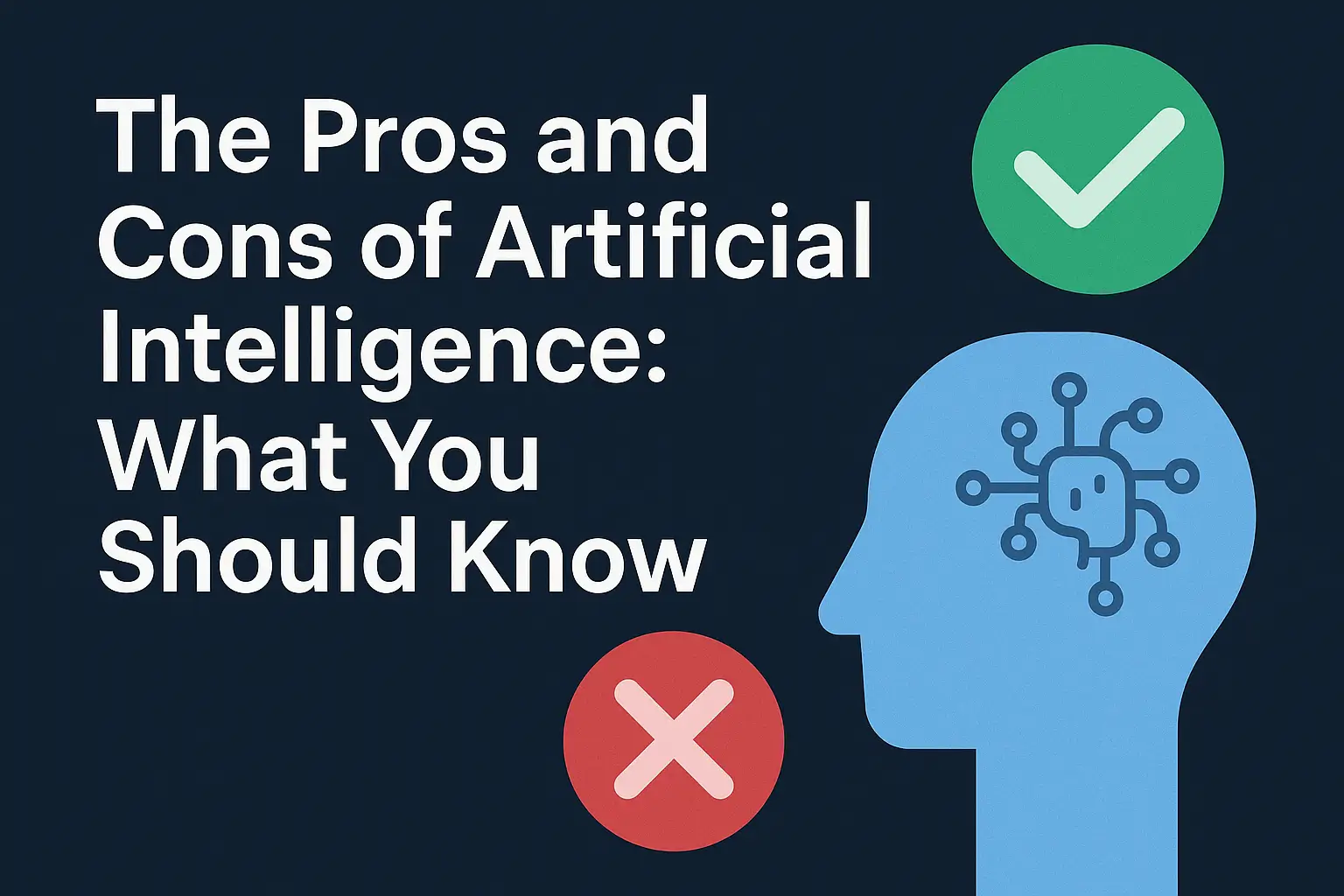Artificial Intelligence (AI) is revolutionizing how we live, work, and interact with the world. From automating mundane tasks to helping diagnose diseases, AI brings immense potential—but it’s not without its challenges. Understanding both the benefits and drawbacks is essential for anyone navigating this increasingly AI-driven world.
Here’s what you need to know about the pros and cons of AI.
The Pros of Artificial Intelligence
1. Efficiency and Automation
AI excels at automating repetitive tasks, allowing businesses and individuals to save time and money. Whether it’s sorting emails, analyzing data, or processing invoices, AI boosts operational speed and minimizes human error.
Example: AI can automate supply chain logistics, reducing delivery times and operational costs.
2. 24/7 Availability
Unlike humans, AI systems don’t need rest. They can work continuously without breaks, making them ideal for customer support, monitoring systems, and operations that require constant attention.
Example: AI chatbots on e-commerce platforms provide instant support at any hour.
3. Improved Decision-Making
AI can process vast amounts of data, recognize patterns, and provide insights that support better decisions. This is particularly useful in fields like finance, healthcare, and business strategy.
Example: Banks use AI to detect fraudulent transactions in real time.
4. Personalized Experiences
From Netflix recommendations to online shopping suggestions, AI personalizes user experiences based on behavior and preferences, enhancing engagement and satisfaction.
Example: Spotify’s AI-driven playlists suggest music that aligns with your listening habits.
5. Innovation in Healthcare
AI contributes to faster diagnoses, treatment planning, and even robotic surgeries. It enhances the accuracy of medical imaging and enables virtual health assistants.
Example: AI systems analyze MRI scans to detect early signs of diseases like cancer.
6. Accessibility Enhancements
AI technologies like speech recognition, image captioning, and predictive text empower individuals with disabilities to interact with digital environments more easily.
Example: Voice-to-text features assist users with mobility impairments in writing documents or emails.
The Cons of Artificial Intelligence
1. Job Displacement
One of the most cited concerns is that AI will replace human jobs, especially in roles involving repetitive or predictable tasks. This creates economic and social disruption.
Affected Areas: Manufacturing, transportation, retail, and administrative support.
2. High Implementation Costs
Developing and deploying AI solutions can be expensive. It often requires specialized hardware, large datasets, and technical expertise that small businesses may lack.
Challenge: AI projects require ongoing maintenance and training, increasing long-term costs.
3. Ethical Concerns
AI raises important ethical questions, such as:
- Can we trust machines to make decisions that affect human lives?
- How should we handle bias in AI algorithms?
- Who is responsible when AI makes a mistake?
Example: A facial recognition system misidentifies individuals based on biased training data.
4. Data Privacy Issues
AI systems depend on large volumes of data. Collecting and analyzing this information can lead to privacy concerns, especially when personal or sensitive data is involved.
Risk: Without proper safeguards, AI can be used for surveillance or unauthorized data mining.
5. Lack of Human Judgment
While AI can process data faster than humans, it lacks emotional intelligence, intuition, and moral reasoning. In high-stakes environments, this absence of human judgment can be dangerous.
Example: An autonomous vehicle must make split-second ethical decisions in unpredictable scenarios.
6. Dependence and Overreliance
Overreliance on AI can reduce human critical thinking and problem-solving skills. There’s also the risk of AI systems malfunctioning or producing unintended consequences if not properly monitored.
Example: Automated stock trading algorithms have caused flash crashes due to unchecked feedback loops.
Striking a Balance
While AI offers impressive capabilities, the key is responsible integration. That means using AI to enhance human efforts—not replace them entirely.
Best Practices:
- Combine AI with human oversight for critical tasks.
- Invest in retraining workers displaced by automation.
- Promote ethical standards in AI development.
- Implement strong data protection policies.
- Regularly audit AI systems for fairness and accuracy.
Where Do We Go from Here?
AI is here to stay, and its role will only grow. As individuals, businesses, and governments explore its full potential, it’s crucial to weigh the pros and cons and act responsibly.
Whether you’re using AI to simplify your life, boost your business, or explore innovation, being informed about its advantages and limitations is essential for making smart, ethical choices.
